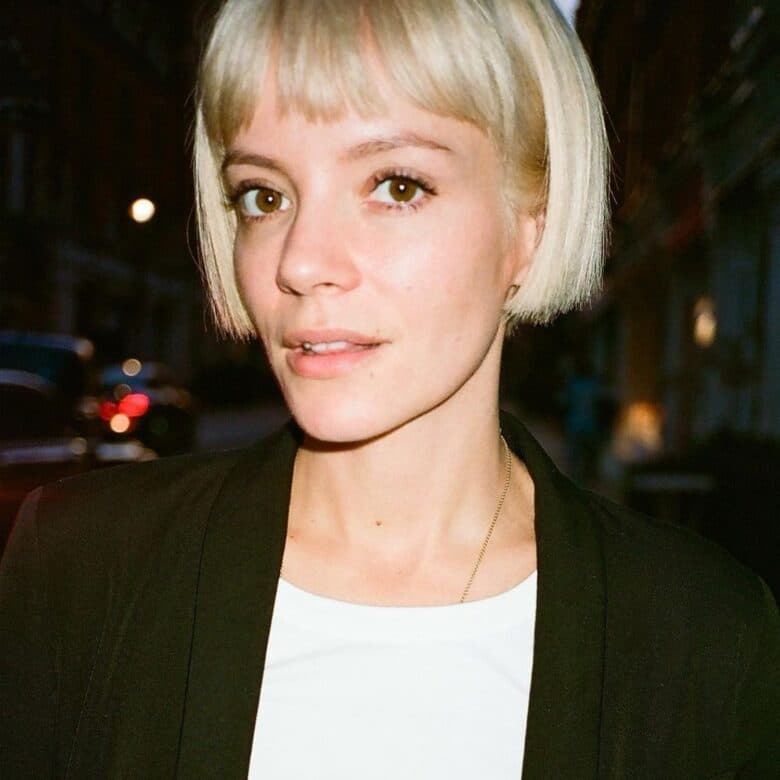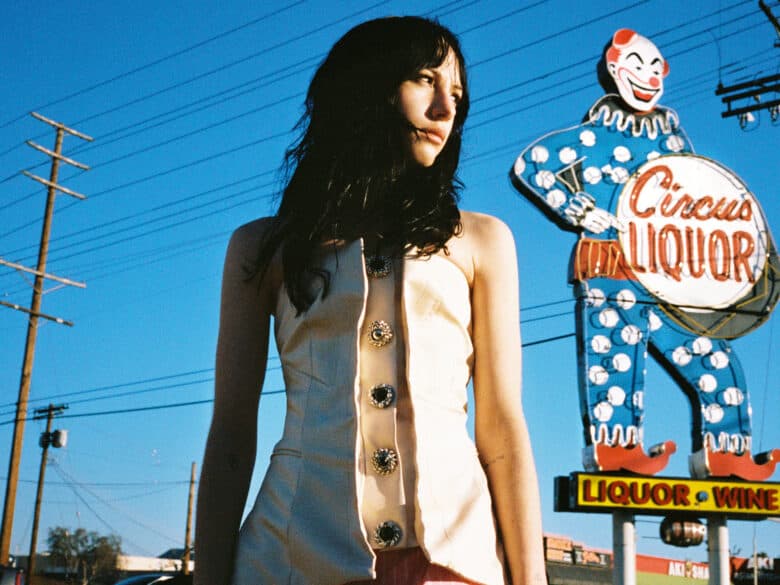Sophie Thatcher speaks ‘Yellowjackets’, growing up Mormon, and what’s next after the hit TV show
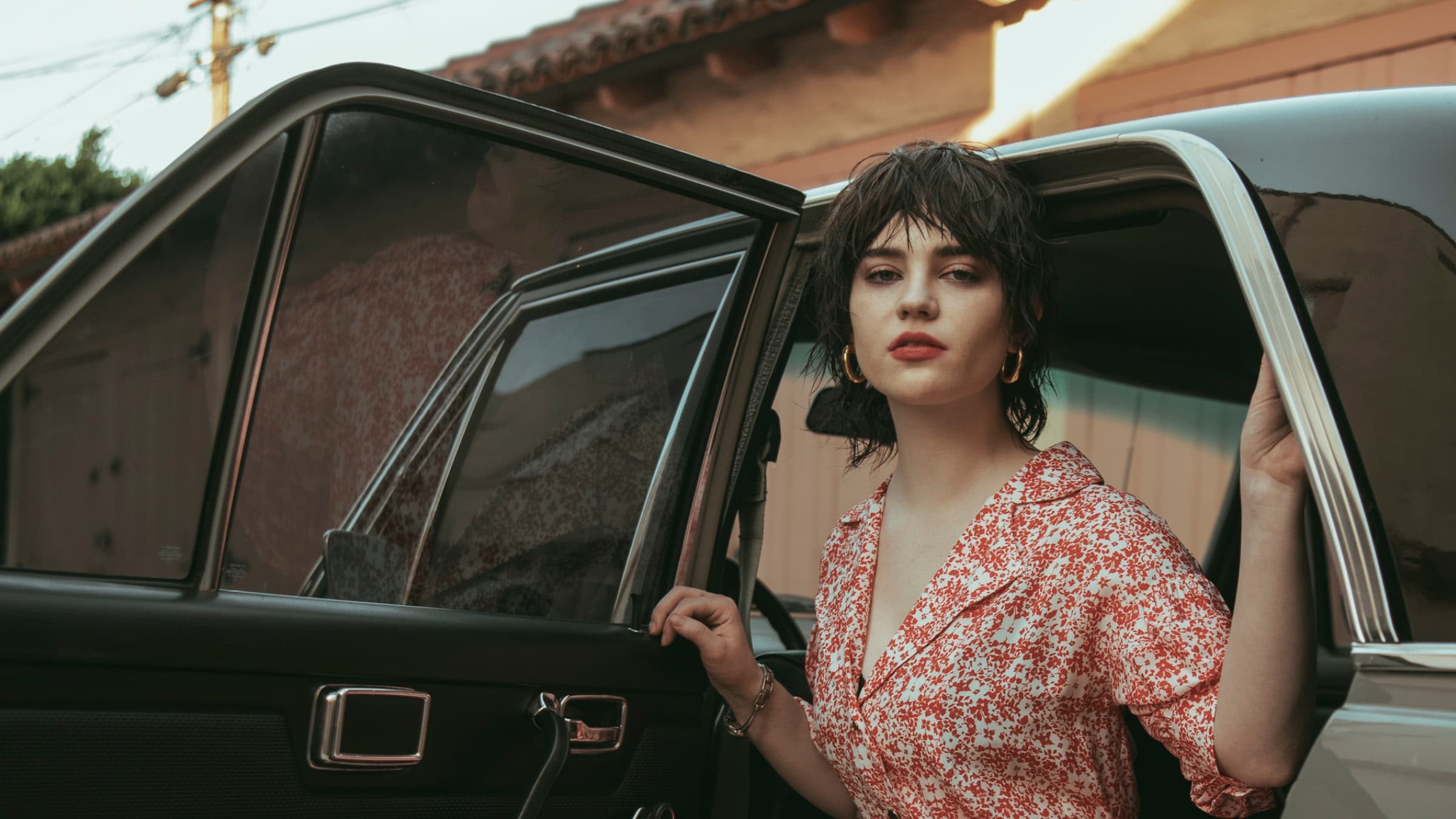
“My sleeping is really messed up, and I don’t know what it is. I just don’t really sleep that much anymore. This is a little concerning, I stayed up until like 7am,” Sophie Thatcher says over Zoom. She’s propped up somewhere in her bedroom, almost slightly lost in all of her decor; several posters of movies by John Cassavetes on the walls and clothes neatly scattered around – the kind of New York apartment that a 21-year-old, blossoming actress would inhabit.
Despite her late night, Sophie shows no signs of fatigue. No bags under eyes and no attempts to disguise a yawn. If anything, she seems much more alive and raring to go than people who religiously get their eight hours.
“I finished three different TV shows in a week. It’s absurd. Search Party, Station Eleven, Daria… I always rewatch BoJack [Horseman],” Sophie laughs, explaining the reasons behind her sleepless nights.
As soon as she joins the call, little murmurs of similarities between Sophie and another actress start bouncing around the audio. There’s an odd resemblance in her voice to Juliette Lewis’, bringing fleeting glimpses of the latter’s face into mind, of her performances in classic films like What’s Eating Gilbert Grape. A weird coincidence considering they both work together closely in the new hit show, Yellowjackets. But also, less of a coincidence considering that Sophie had to study Lewis closely, examining her vocal twangs and her mannerisms for her role in the series.
Both Sophie and her co-star play the same role in the show, Natalie, albeit at different points in her life. Sophie navigates the part as the character in 1996, a teenager who is living her life, doing the drugs that teenagers like to do, before a plane crash leaves her and her soccer team stranded in the Ontario wilderness — rupturing their adolescence. Lewis portrays Natalie in her adult life, which runs simultaneously through the show, exploring the far reaches of trauma and the long-lasting effects of the crash.
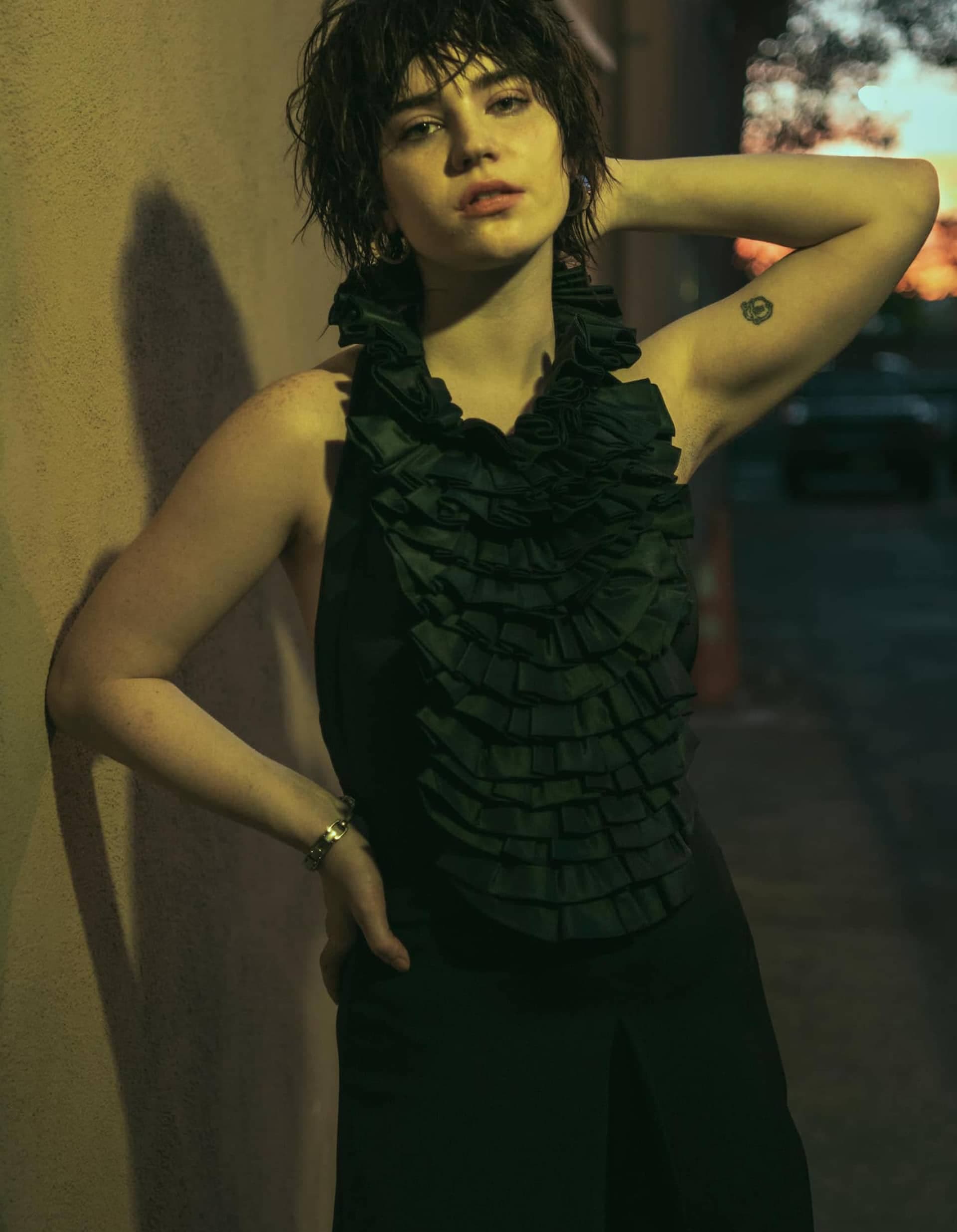
Yellowjackets has rightfully taken its place on everyone’s list of conversation starters — it’s the hot show of the moment. The one that, in a few weeks, the majority of the population will have binged, loved and Googled for hints about a season two release date.
And the joy of watching Yellowjackets is matched by the exuberance that Sophie has when she speaks about the show and everything that went into it. She acknowledges that every actor establishes family-like bonds with the cast of any show, but she really means it when it comes to this one. Yellowjackets explores some dark themes, so they had to check in on one another, and ensure that certain scenes (like episode four) didn’t come home with them. And even though she lived out of a suitcase for two years, which she says she enjoyed at the start for its romanticised nomadic and artistic clichés, the show clearly sits alongside great warmth and pride in her memory.
HUNGER sat down with Sophie Thatcher to talk all things Yellowjackets, her love of music, her culture-filled upbringing, and how she got to where she is today…
So, what do you do for fun in New York?
There’s a karaoke bar right across the street from me. That was a big way of spending my time in Vancouver; bring all the cast together and we’d do karaoke. But I make music too. I have my synth here. I’m trying to stay busy with that. I’m trying to stay artistic, but you can’t force it. I haven’t been able to work on music for a bit. I haven’t released anything in like a year. I have some down time, so I’ll probably go back to that.
Is that how you unwind after acting? You play music?
Yeah. But sometimes it makes me a bit more frustrated. It depends on my headspace. I like my mindset with music because it’s for myself and trying to take away the pressure of having to post it. Music is definitely my number one, without a doubt. I just happen to not be as good at it.
What kind of music do you make?
It depends. I’m still trying to find my sound. I have a couple of synth-pop songs. I listen to a lot of different music and I’m trying to experiment with what resonates with me the most.
When you were young, why did you want to get into acting?
It was just always in me. I always had to perform or do something artistic. I was just a story teller. My older sister was an actor and I saw her act early on, and that really inspired me. But I think I was just a little bit uncomfortable being in my own skin, and I learned pretty quickly how to put on different characters. I would go to the extreme where I would watch a movie and decide who I was going to be for the rest of the week — my favourite character from the movie. Early on, it was my way of coping. It was innate. It was in me.
In what ways didn’t you feel comfortable in your skin?
I have a twin and I feel like naturally that makes you a little bit more socially awkward because you’re less inclined to hang out with friends because you have your twin. I think that kind of made me more weird. I grew up in a really nice suburb and we were definitely the only people early on into art and different things, just naturally we were a little bit different. My mum put me into improv classes where we did a lot of body improv, and that really helped me get comfortable with my body.
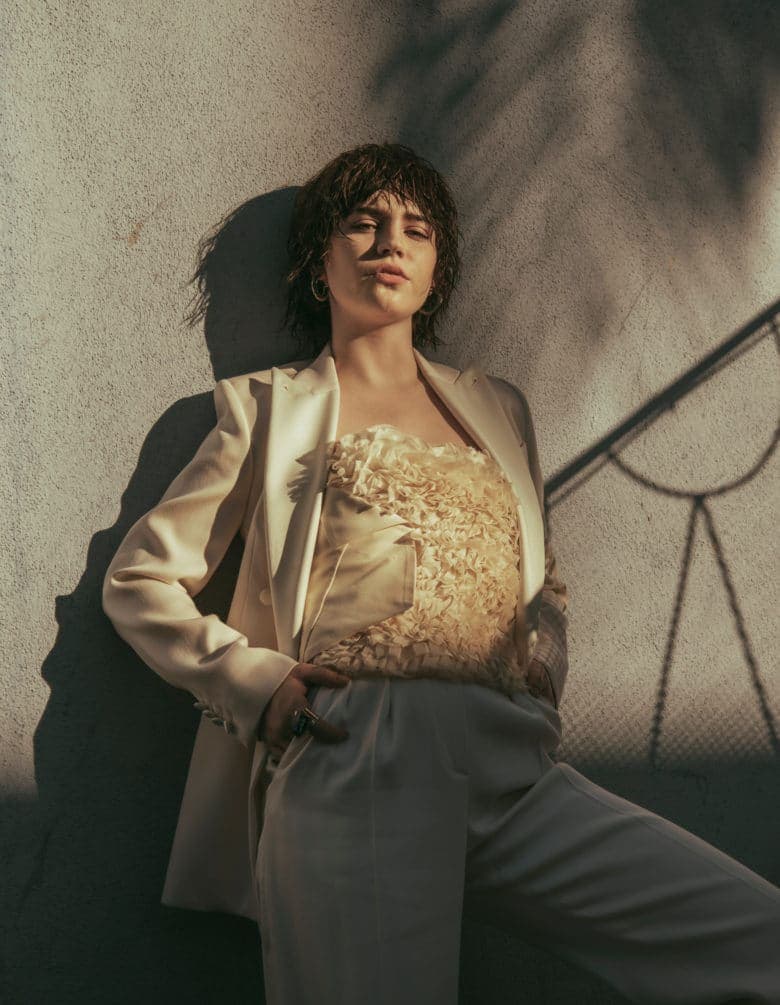
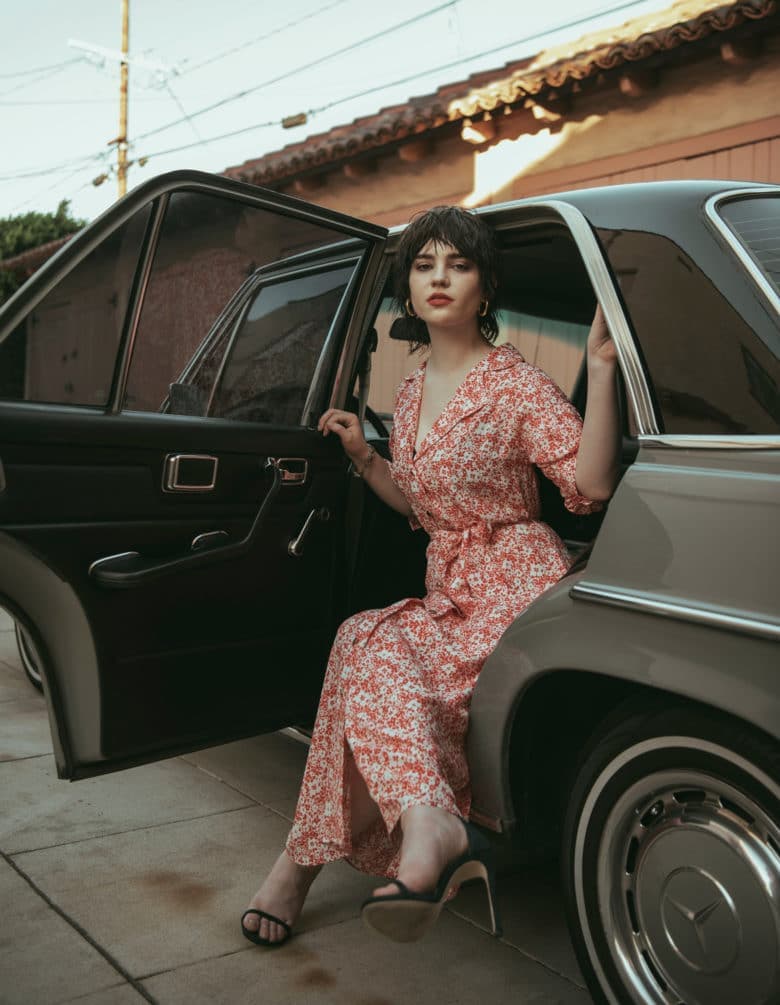
Who were your biggest inspirations?
Kate Winslet was always a big one growing up. There were so many. Now, I would probably say Gena Rowlands. Michelle Williams was my biggest. She just has the most insane career, she has so much range. Philip Seymour Hoffman was a really huge one for me. Him and Michelle Williams are my biggest influences.
Have you watched Licorice Pizza?
I did! I’m a big Paul Thomas Anderson fan. He’s probably the best filmmaker right now, without a doubt. I loved it. I cried a lot. I cried during the trailer. [Philip Seymour Hoffman’s] son – you just root for him. Alana Haim surprised me so much.
When was the moment you knew this is what you wanted to do?
I was a big musical theatre kid. I saw Ragtime with Audra McDonald and Norm Lewis, front row. I was the biggest McDonald fan. I think that was a really huge moment for me. I was sobbing, but it was a release. The fact that it was so powerful and could do that to me… I’d never really had that with anything before besides music. Also, I would always go to see my sister in her shows. I was like, I want to be that cool.
What kind of themes would you like to explore with that writing?
Music, and women in music. I would love to do a period piece. The 70s in New York is one of my favourite times. Within the punk scene too. I’m reading this book on Arthur Russell, and how he helped start the No Wave scene. I’ve done some shorts with my older sister. She has a feature coming out that I produced. We grew up Mormon, and religion is a really interesting topic for me, but I don’t know if I’m fully there yet to delve into it. It was hard growing up Mormon, and I feel like it would be hard to write about, but she did. My twin also makes claymations, and I’ve had some ideas to incorporate her work into some of my writing.
How come it was hard growing up Mormon?
In Chicago, there weren’t a lot of Mormons in the town growing up. I grew up expecting everyone to be Mormon and nobody was. It isolated me and my twin even more so, it didn’t help that we were already a little weird, but being Mormon was even worse. I left pretty early on because my older siblings had left when I was ten or eleven. Professionally acting was taking me away from the church and I would have to miss most Sundays. I despised going to church. I absolutely hated it. I had the influence of my older siblings telling me that it was evil. I don’t think it’s evil, I just don’t think it’s right for me. But as a kid it just made me so angry. Working was a good way to get out of going to church.
Why is now the right time for a show like Yellowjackets?
Thematically, it covers so many areas. I don’t think there are a lot of shows that portray trauma in such a realistic way. It’s such a perfect set up to dive deep into that. Now with the second season, we’re going to be able to dive deeper. Just the fact that it’s all females, and nobody’s perfect, they’re all so complicated and it goes into the complexities of female relationships and growing up. It can get really toxic and there’s nothing safe about it. Now, of course, with streaming people don’t feel like TV shows don’t have to be safe anymore. People are trying out risks. And Yellowjackets is.
Are there any aspects of your character that you would say are similar to who you are as a person?
I always ask my friends watching me in it: “Do I remind you of Natalie?” And they say no, not at all. I drew from parts of me in high school. I wasn’t as messed up in the head but I respect that Natalie doesn’t have a filter and she’s very true to herself. I was too, to an extent, but I don’t think I was as brave as her. She had to fend for herself really early on, and I think that really changed her. She had to grow up extremely quickly, and so did I. She had to grow up in a much gnarlier way. Artistically, I think Natalie and I would have bonded over music. I would’ve really looked up to her in high school.
How do you make Natalie your own?
I’m very careful with not trying to get too deep into that because it has been hard with some scenes, and episode four. If you go too deep into that and draw too close to yourself, you take the character home and it can get messy. I think Juliette [Lewis’] Natalie is so different from younger Natalie, which actually surprised me a lot too because in the pilot they’re a lot more similar. You expect Natalie to go a certain way throughout the series, but she goes a completely different way, and that surprised me. I think Julia and I found ways to make Natalie our own. I think it was within her voice… I would study her in every readthrough and study her mannerisms.
Has there ever been a time when you’ve found it challenging to leave Natalie behind after a certain scene?
Yes. In the second season I want to be careful of that. Episode four was a weird, stressful time for me. I’d come out of a breakup and I was bringing too much of my own stuff when I know that I have this skill set to do it, in the traditional actor sense when I don’t have to bring my own stuff. Season two’s just going to get more intense.
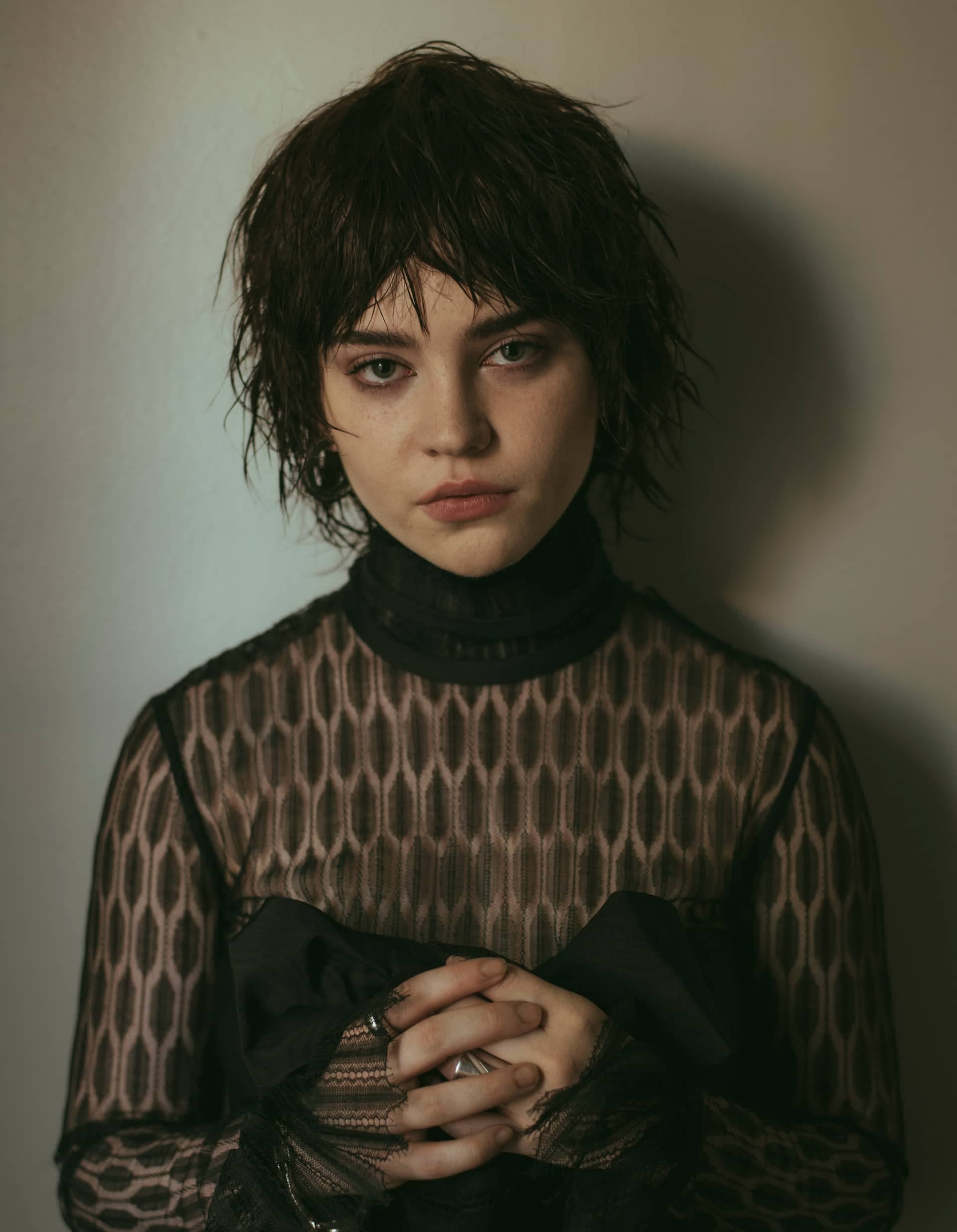
What do you think the role of an actor in the world is nowadays?
People look to actors to find comfort, to find safety, and to feel less alone. I hope to be able to provide that. I hope to bring comfort to people and take them out of their world for a second and let them live in an entirely different world with me. I think people need that right now, because it’s a really fucking hard time. It’s good to be fully immersed into an art form, that’s as special as it gets.
How do you want the world to see you as a performer?
I don’t really want the world to see me as Sophie Thatcher. I want people to see me as my characters, and I want there to be a very fine distinction. I want to fully delve into the characters. I want to keep a little private so people let me be a chameleon, and I want to transform into every role and I don’t want people to recognise me. As a creative, I want to delve into every music genre.
What are your greatest ambitions, in acting or beyond?
This is selfish, but I just want to feel artistically fulfilled. I want to continue to tell stories. I want to continue making music, continue working with female directors. I really want to work with my sisters too, I think that’s a really special thing. I honestly have the most talented family, and I think that’s rare. There’s so much I want to do.
